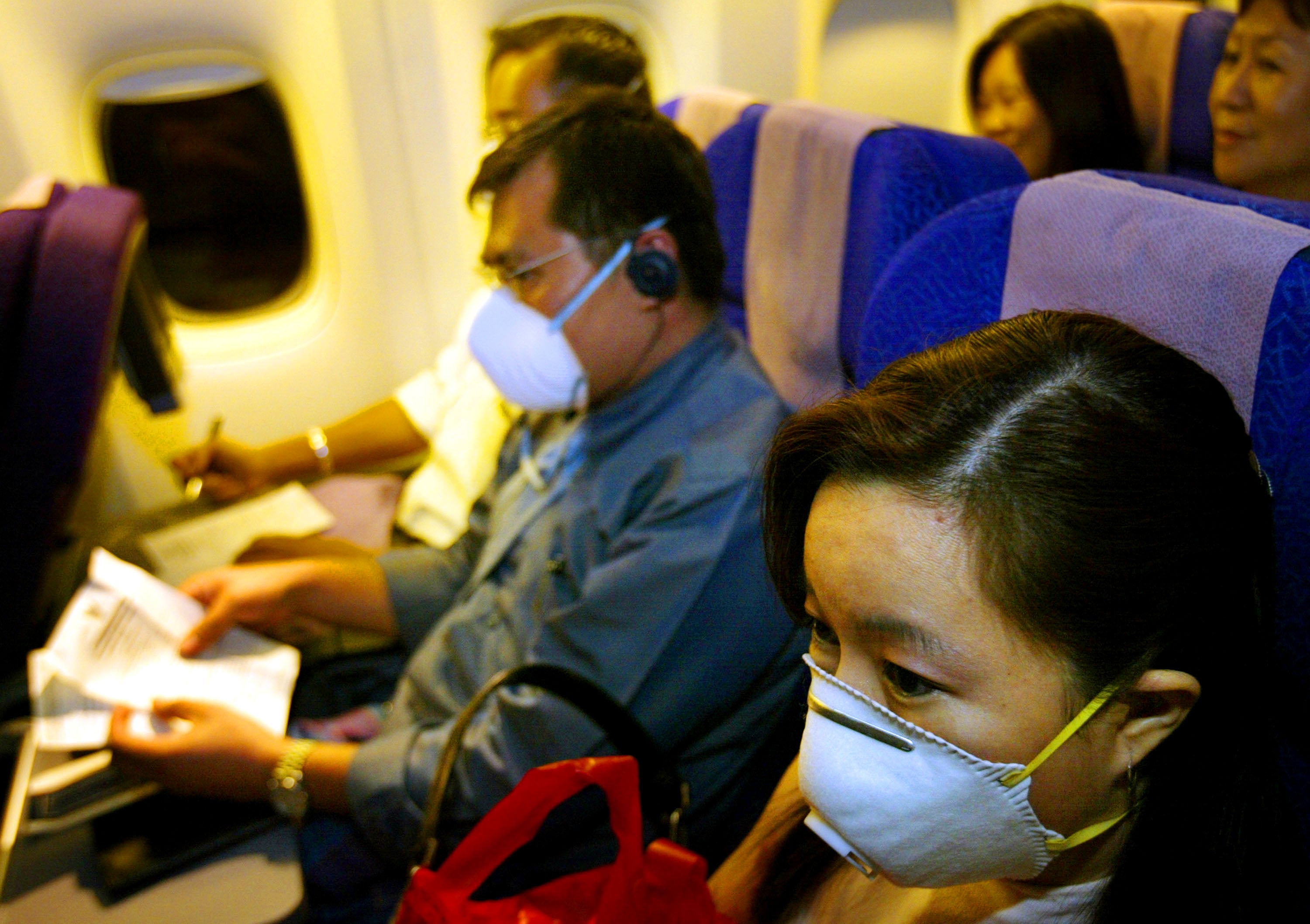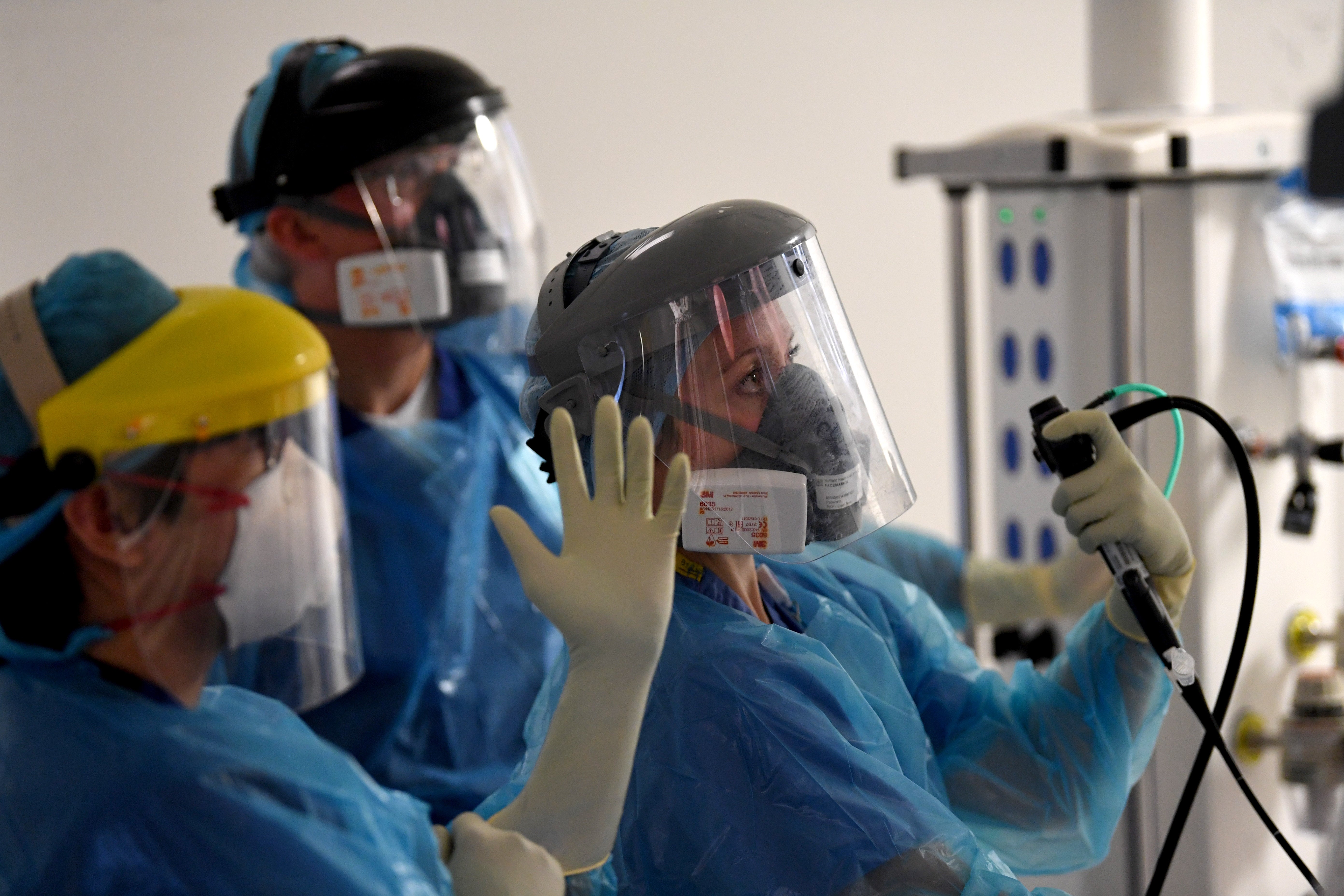Revealed: Britain’s ‘lost’ blueprint for fighting a coronavirus outbreak – written 16 years ago
The Coronavirus Files: After Sars swept across the globe, the UK drew up a plan for fighting an airborne virus arriving in Britain from China. The 2005 document was filed away in Whitehall, and apparently never used. Now uncovered, its recommendations – from limiting travel to stopping ‘super-spreader’ events – are strikingly similar to the measures belatedly brought in to fight Covid-19. Former government advisers tell Samuel Lovett that this guide to fighting an epidemic could have saved tens of thousands of lives


A blueprint for responding to a coronavirus outbreak was drawn up by the UK government in 2005, The Independent can reveal – but the plan was seemingly “lost” in Whitehall, never acted upon or even considered when Covid-19 swept the planet.
The document, drawn up in response to Sars, recommended building up infrastructure for virus testing and PPE stockpiling in case of an outbreak, while response measures included travel restrictions, isolating and testing contacts with infections, and limiting “super-spreader” events.
One former government adviser said that the framework – based on a coronavirus outbreak beginning in China and spreading across the globe – could have saved “tens of thousands of lives” if it had been used to guide the response to Covid-19.
Instead, the draft contingency plan appears to have gone “missing” shortly after it was submitted, Whitehall sources past and present told The Independent. One senior medical adviser who served in Downing Street throughout the last decade said they were “totally surprised” to learn of the blueprint, despite having worked in emergency health planning and pandemic preparedness.
Another involved in the early response to Covid-19 said ministers had been “starting from scratch” in February and March 2020, as the outbreak in the UK grew, adding: “There was no awareness of this document.”
Although Sars – severe acute respiratory syndrome – differs from Covid-19, both are coronaviruses and share many similarities in genetic make-up, how they spread and the disease they cause in infected people. The 2005 plan, put together by the Department of Health, warns of spread via “finer aerosols of infectious respiratory secretions, which stay in the air longer than droplets”, meaning it can be passed from one person to another through the nose, mouth or even eyes. Covid-19 transmits in the same manner.
The document, uncovered by a Freedom of Information request, even warns of the risk of “super-spreading events” and reiterates the need for good ventilation, particularly in a healthcare setting, in order to “direct airflow … and remove contaminated air”.
When Covid-19 spread to Europe from China at the start of 2020, Britain loosely followed a strategy devised for tackling pandemic influenza. Under this strategy, mass gatherings were permitted, international arrivals from numerous affected countries weren’t placed into quarantine, and the virus was largely given free rein to pass through the population until the imposition of lockdown.

But it is the Sars contingency plan that should have been used instead of the flu textbook at the beginning of the Covid pandemic, says Sir David King, chief scientific adviser from 2000 to 2007, who was involved in developing the document.
“It was overlooked,” he said. “I believe tens of thousands of lives would have been saved. I think the economy would have been in a much better place too.”
As it stands, Britain has had almost six million confirmed cases of Covid-19, with more than 150,000 deaths attributed to the virus.
Sir Jeremy Farrar, a senior member of the government’s Scientific Advisory Group for Emergencies (SAGE), said that Downing Street had turned to its flu textbook when Covid hit as it was faced with a “brand new infection… for which we which we had no diagnostics, treatments or vaccines”.
In that situation, he said, “you’ve got to go back to some sort of template that you can run a system on, while you then adapt as new data and evidence comes in”.
‘Newly emerging threats’
The document, dated 23 June 2005 with the word “draft” in capitals across each of its 48 pages, begins by outlining the 2003 response to Sars, of which there were four confirmed cases in the UK and 8,000 around the world. The outbreak was, it says, a “wake-up call to the global public health community to re-evaluate their preparedness” for bringing in measures to combat an emerging infectious disease.
“Even if Sars does not re-emerge,” the introduction says, “many of the issues addressed are relevant to generic preparedness for other infectious disease outbreaks and emergencies, including other newly emerging threats.”
While a government spokesperson told The Independent that the response to a Sars outbreak would be “significantly different” to that of the Covid pandemic, many of the measures detailed are similar to those that Britain was slow to put in place . Experts who have worked at the top of government also said the plan would have proved useful in forming a response as the virus spread around the world last year.
In the “lessons learnt” section, the document stresses the need for “clear and transparent communications”, surge capacity in hospitals and testing, rapid detection of illness and isolation of cases, and increased infection control measures – such as high-quality personal protective equipment (PPE) – in healthcare settings. In contrast, Britain’s early response to Covid was defined by PPE shortages, a lack of testing facilities and an early decision to abandon attempts to isolate contacts of confirmed cases.
The document lays out a framework that sets out six “action levels” in response to a growing outbreak. As cases start to appear in an “uncontrolled” manner in multiple countries outside the UK – level two – the contingency plan urges ministers to “reduce the risk of importation by reducing travel to and from affected areas”.
It also instructs health leaders to verify the “readiness of hospitals/units” to accept suspected Sars cases, review PPE supplies, and “assess [the] risk of Sars in patients attending A&E triage”.
Read more special reports from our Supporter Programme
Under level four, the point at which multiple outbreaks are being reported across the UK, potentially leading to high NHS demand, the government should continue “intense case finding” – tracking down those with the virus – and consider restricting mass gathering, the plan says.

Although the Sars plan does not offer guidance for a pandemic-scale outbreak, had it been adopted and followed in response to the early emergence of Covid-19, the UK would have begun its preparations in late January, when the virus spread to South Korea and Italy, then entered level four a month later, as cases began to emerge across the four nations.
Labour’s Jonathan Ashworth, the shadow health secretary, who was himself involved in the government’s response to swine flu in 2009 as an adviser, said the UK’s pandemic preparedness was “woefully inadequate” entering into the Covid crisis.
“Years of Tory cuts left healthcare services weakened, we were forced into a desperate scramble to build up PPE supplies and diagnostic capacity while expert scientific research and plans were ignored,” he added.
‘I don’t know where it went’
Those who worked on the plan in the mid-2000s believe it was passed on to ministers in the then-Labour government but never properly formalised. An earlier interim plan was published in 2003, and it is understood the 2005 document was intended to be a resource for other government departments, health protection agencies and local authorities. It was then listed on the National Risk Register of emergency plans until 2015.
Pat Troop, who also helped develop the plan while chief executive of the now-defunct Health Protection Agency (HPA), said it “would have gone to ministers and probably been discussed in Cobra”. After that, she said, “I don’t know where it went.”
Alongside Sir David, she ran a number of emergency disaster scenarios for cabinet ministers during the mid-2000s specific to Sars. The outcome of these “tabletop” sessions then fed into the development of the plan.
Susan Scholefield, the director of the Cabinet Office’s unit for emergency planning from 2002 to 2004, said Sars was “the big disease” during her time in office.
“What we were particularly looking at was screening before people left whatever country they were coming from and arrived in the UK, and screening in UK airports,” she said. ”That was a very important aspect.” Ensuring air conditioning in buildings was properly purified and maintained was “another consideration”.
I was told, ‘No, it won’t reach here’
But by 2009, the swine flu outbreak led the government to focus instead on an influenza pandemic. “A lot of work was done in preparing for this,” said Miles Elsden, a former government scientist who advised on emergency contingency planning between 2008 and 2012. “There was large scale planning and exercises around influenza, but the government didn’t necessarily reflect enough about what other types of diseases might be out there.”
Professor Gabriel Scally, a regional public health director in England throughout the 2000s and now a member of the Independent Sage group of scientists, said the Sars plan – which “likely crossed my desk” – would “definitely have made a difference” had it been implemented.
“It is absolutely appropriate and that's the one I would have gone for,” he said. “There was a later one, which was influenza, but it was really apparent from the very beginning that this wasn’t influenza. It was much more serious.”
He said that, as government contingency planning was cut through the early 2010s, “it’s not surprising that the Sars plan went missing”. Professor Chris Dye, a former director of strategy at the World Health Organisation, said: “There are plenty of similar plans lying fallow in the offices of governments around the world.”
A government spokesperson said that the vaccine programme had saved 60,000 lives and prevented over 22 million infections, adding: “There have been no known cases of Sars anywhere in the world for over 15 years and it is right that the government focused on more likely risks to public health.”
One senior medical adviser during the 2010s said that they had suggested running tabletop exercises for ministers on Sars but Public Health England refused. “I was told, ‘No, it won’t reach here,’” the source said. “This persisted with Covid. This belief that it won’t ever reach here and we don’t need to learn from the countries in Asia. We took a long time to wake up, even when it was in Italy.”
However, they too said the Sars plan could have played a key part in the Covid response. “We would have known about airflow, we would have protected our staff better and thought about the co-morbidities more. And if we just followed this, maybe we'd have started planning earlier.”
Join our commenting forum
Join thought-provoking conversations, follow other Independent readers and see their replies
Comments

Bookmark popover
Removed from bookmarks